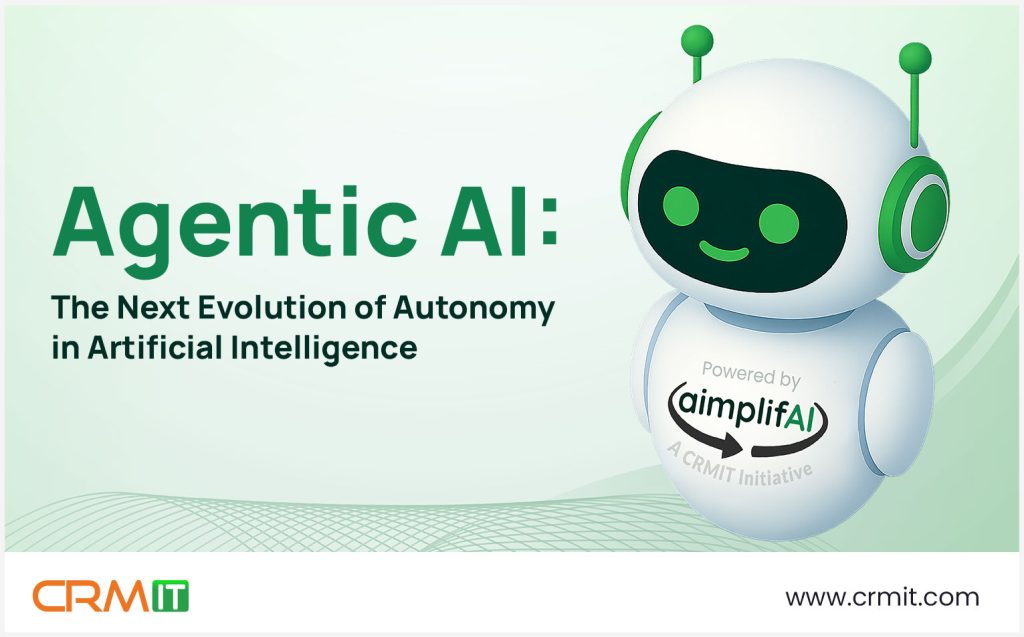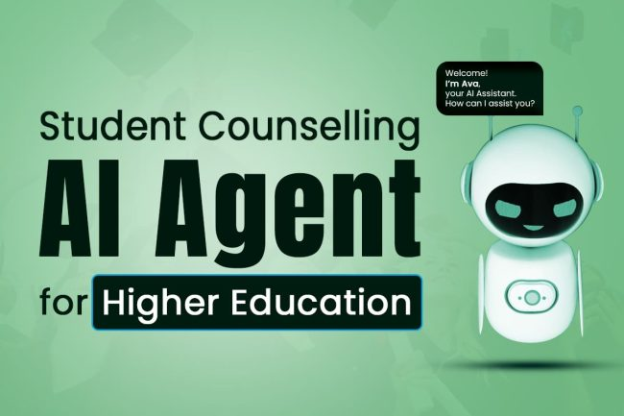Understanding Agentic AI: Intelligent Enterprise Solutions for the Future

Artificial intelligence is in a state of revolution—static, purpose-built systems to perform discrete tasks, to goal-oriented, dynamic systems to make sophisticated decisions autonomously. The next generation of AI is referred to as Agentic AI, and it is rapidly becoming a platform for innovation in healthcare, education, and enterprise automation.
In this blog, we’ll break down what Agentic AI actually is, how it differs from traditional AI systems, and why industries are turning to Agentic AI solutions to solve challenges that were previously out of reach.
What is Agentic AI?
In essence, Agentic AIs are smart agents that are AI systems. Agentic systems differ from orthodox models of AI that operate based on a pre-determined set of codes or perform narrowly specified tasks. They have the capacity to decide, learn from new information, and drive goals across long timescales.
They are not only reactive but proactive, always planning, reasoning, and learning as they interact with their environment or users. They are able to decompose complex goals into executable steps and carry them out with prudence, frequently in coordination with other agents or systems.
Agentic AI originates from cognitive science and decision theory and leads to systems that can:
- Reason about tasks and objectives
- Adjust to new situations without reprogramming
- Get immediate feedback
- Engage with human users or other agents
This not only makes Agentic AI a next-generation innovation in AI, but a revolutionary rethinking of the limits of intelligent systems.
Agentic AI vs Traditional AI: The Main Differences
To better understand the innovation of Agentic AI, it is helpful to put it into perspective against more traditional AI systems. Here are some of the main differences:
| Traditional AI | Agentic AI |
| Traditional AI Agentic AI | Goal-based and proactive |
| Requires ongoing human intervention | Operates autonomously |
| Has limited contextual knowledge | Triggers responses to changing environments |
| One-time decision-making | Enables ongoing, multi-step reasoning |
| Usually rule-based or statistical | Leverages logic, learning, and planning |
Although standard AI systems are still able to perform adequately in most circumstances—e.g., data processing, object recognition, or recommendation—standard AI systems tend to struggle with high-level, real-world decision-making. Herein lies where solutions based on Agentic AI excel.
Why Agentic AI is a Game-Changer Across Industries
The transition to goal-directed reasoning has profound ramifications. Let us observe how Agentic AI is revolutionizing key industries by cracking problems beyond the capability of conventional systems.
1. Healthcare: Smart Patient-Focused Care
For the healthcare industry, Agentic AI enables context-sensitive, longitudinal care—aiding clinicians and patients alike with ongoing reasoning, not episodic diagnoses.
Consider a situation where an AI agent is able to:
- Monitor a patient’s long-term health
- Integrate with multiple sources of data (wearables, labs, EMRs)
- Actively suggest interventions or trigger alerts
- Assist medication schedules or treatment plans
These agents are not substitutes for doctors but enhance their ability. They provide smart support, enabling providers to provide more customized, evidence-supported care without the encumbrance of administrative burdens.
The outcome is proactive care: AI agents work as digital care managers, adjusting instantly to changing medical conditions and patient needs.
2. Personalized Learning at Scale
Ed-tech websites previously would just provide content and give grades. Agentic AI agents in higher education are interactive, responsive learning companions.

Here’s how they’re changing the game:
- Tailor learning materials to student learning styles
- Monitor progress and adjust curriculum in real-time
- Pin down confusion points and offer assistance in real-time
- Offer 24/7 project help or tutoring
Instead of applying the same treatment to every student, such AI agents can assist in enabling truly personalized learning so that no one falls behind. Institutions see increased engagement, improved retention, and learn-outcome insight based on data.
This is especially relevant to colleges and universities where large class sizes and scarce faculty time typically squelch personal attention.
3. Enterprise Automation: Autonomous Decision-Makers
For business use, the transition from fixed process automation to dynamic, Agentic enterprise AI solutions is already in progress. These intelligent agents have more capability than executing scripts—they can learn business rules, decide, and interact with human teams.

Take examples such as:
- Supply chain decision automation based on variable demand
- Identifying and fixing IT problems without human escalation
- Handling sales and marketing workflows start-to-finish
- Operating as financial services AI agents—operating transactions, detecting fraud, or counseling customers
In finance, for example, financial services AI agents can function as electronic analysts, sifting through vast databases to create investment recommendations or risk estimates. They improve over time by learning from results, as opposed to requiring periodic manual readjustment.
It is not just about efficiency for the modern firm—it is resilience, agility, and scale-based innovation.
Looking Ahead: A Foundation for Collaborative Intelligence
The most compelling feature of Agentic AI is the potential for collaborative intelligence—humans and AI agents working together, taking advantage of each other’s strengths. AI performs complexity, routine, and quantity; human beings supply creativity, ethics, and empathy.
Agentic AI is not to displace humans. It’s to raise them up. It frees professionals—whether in medicine, education, finance, or operations—to do more of what they care about.
Final Thoughts
Agentic AI is a major leap from the early generations of artificial intelligence. It brings us closer to systems that understand context, pursue goals, and act autonomously—like human partners.
Whether through Agentic AI solutions for enterprise, AI agents for higher education, or intelligent assistants in financial services, these systems are unlocking new possibilities across industries. And while we’re still in the early stages, the potential is clear: smarter, more adaptive AI that helps humans do more, better.
As companies and organizations venture forth, adopting the agentic model can likely lead to the next cycle of innovation, efficacy, and expansion.